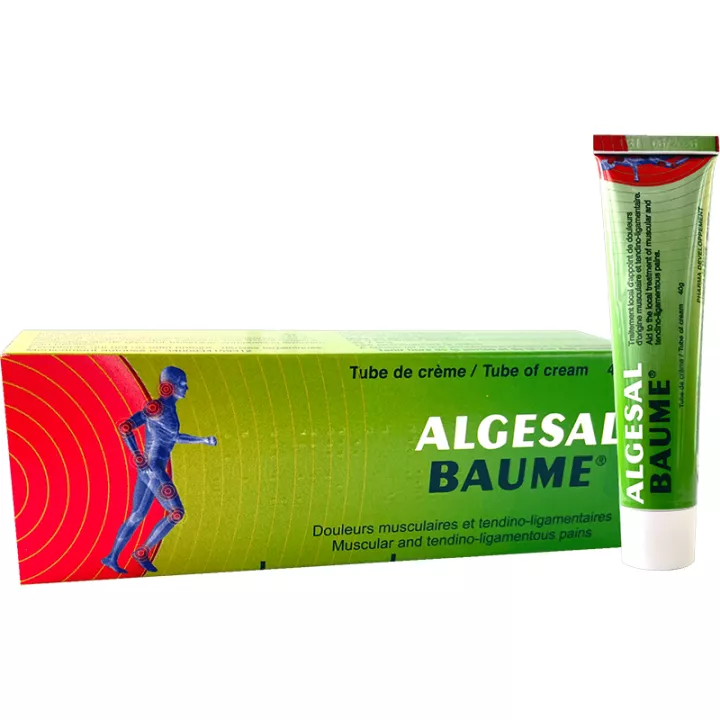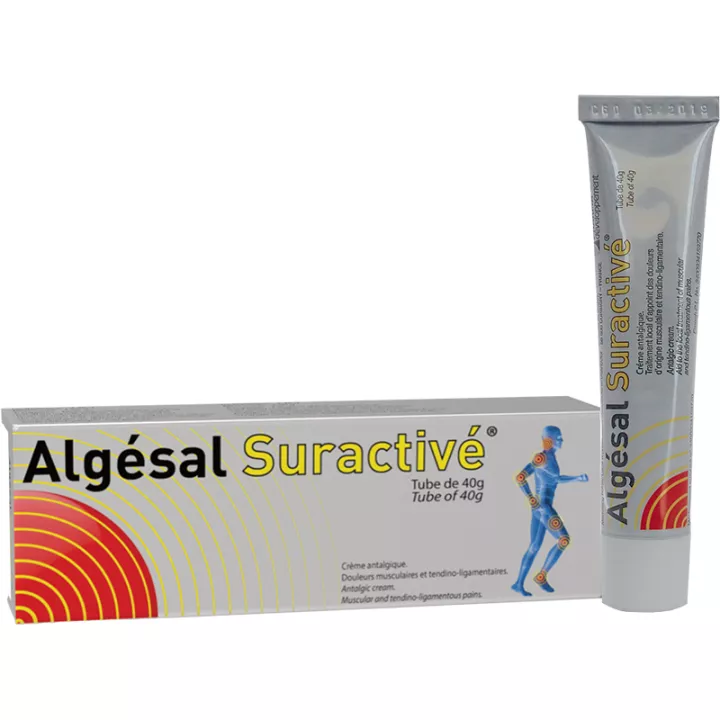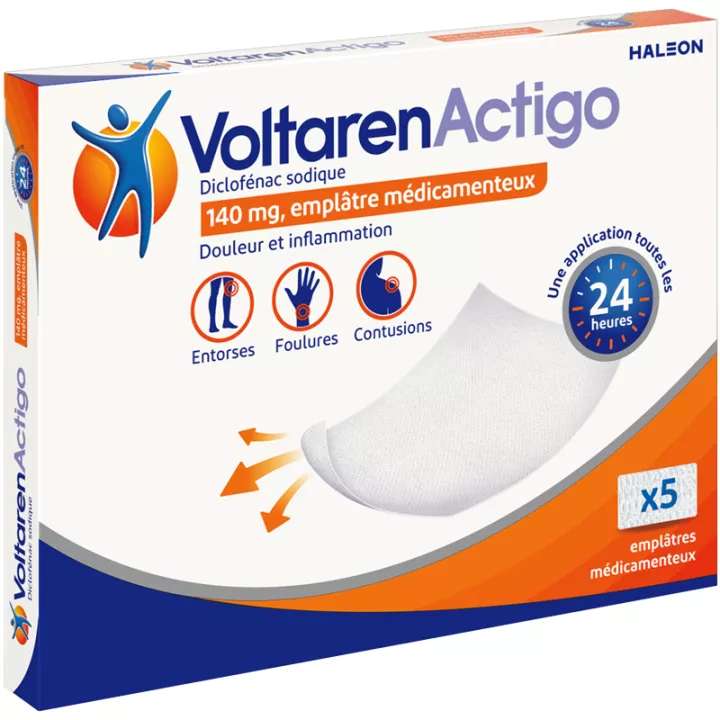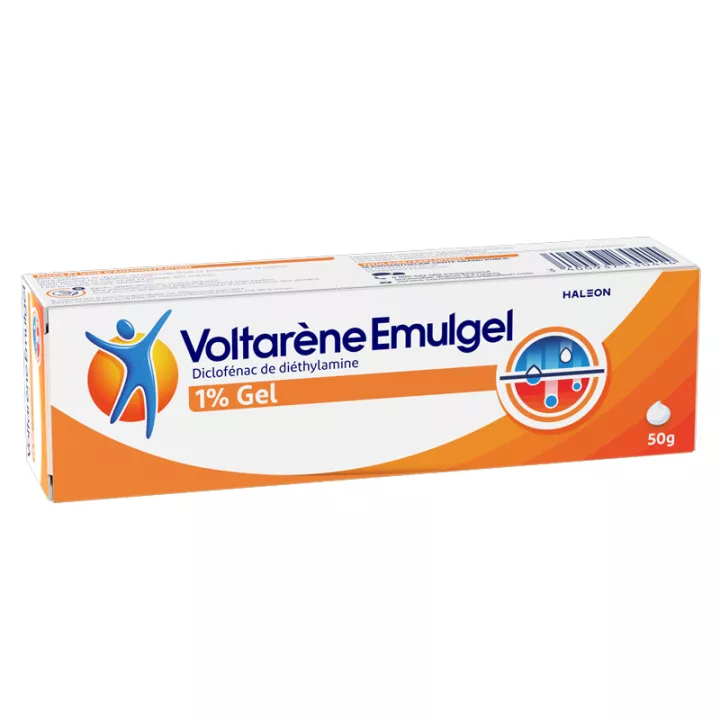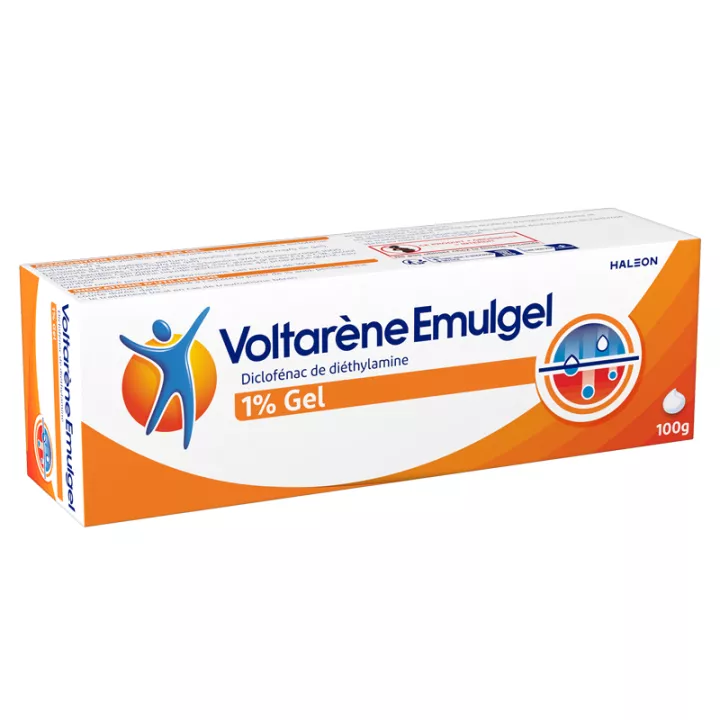Analgesic of local action
diethylamine salicylate
. Presentations . Composition . Indications . Contraindications . Warning . Pregnancy and breastfeeding . Directions for use and dosage . Advice . Undesirable effects . Lexicon
ALGÉSAL BAUME: cream; 40 g tube.
-
Laboratory PHARMA DEVELOPPEMENT SA
| p 100 g |
| Salicylic acid | 6.54 g |
| diethylamine | 3.46 g |
| Camphor | + |
| Eucalyptus essential oil | + |
This
analgesic cream contains a
salicylic .
It is used in the adjunctive treatment of muscle pain, tendons and ligaments.
This medication should not be used in the following cases:
Avoid the use of this cream in the child without the advice of your doctor (presence in the excipient of
terpenes that can in excessive doses have serious side effects).
Precautions are necessary if there is a
history of
epilepsy .
Pregnancy : The effect of this medication during pregnancy is not well known: only your doctor can evaluate the possible risk of its use in your case.
Breastfeeding: The available data do not indicate whether this drug passes into breast milk: do not use it during breast feeding without medical advice.
The cream should be applied to the painful area in soft and extended massage until complete penetration.
Usual dosage:
- Adult and child over 7 years: 2 or 3 applications per day.
Remember to wash hands after application to avoid contact with eyes and
mucous membranes .
Local
allergic reaction requiring discontinuation of treatment.
If the recommended doses are not observed:
convulsions in children, agitation, confusion in the elderly (presence of terpenes in excipients).
allergy
Skin reaction (itching, pimples, swelling) or general discomfort occurring after contact with a particular substance, use of a medication or ingestion of food. The main forms of allergy are eczema, urticaria, asthma, angioedema and allergic shock (anaphylactic shock). Food allergy can also result in digestive disorders.
analgesic
Medication that works against pain. Analgesics act either directly on the centers of pain in the brain or by blocking the transmission of pain to the brain.
Synonym: analgesic.
antecedent
Affection healed or always in evolution. The antecedent may be personal or family. The background is the history of a person's health.
convulsions
Involuntary contractions limited to a few muscles or generalized to the whole body. They are due to excessive pain or stimulation of the brain: fever, poisoning, lack of oxygen, brain damage. Convulsions may be due to an epileptic seizure or high fever in young children.
eczema
Skin disease manifested by pimples and itching. Eczema may be due to contact with an allergic substance (contact eczema) or be linked to a genetic predisposition (atopic eczema).
epilepsy
A chronic seizure disorder associated with abnormal electrical activity of a group of brain cells. Its manifestations, varying in intensity, range from the sudden drop in attention (absences, or small evil) to loss of consciousness accompanied by abnormal muscle movements (convulsions, or great evil). Partial epilepsy, as its name implies, does not concern the whole body: the jerky movements only touch one or more muscle groups.
mucous
Tissue (membrane) that lines the cavities and ducts of the body communicating with the outside (digestive tract, respiratory tract, urinary tract, etc.).
Allergic reaction
Reaction due to hypersensitivity of the organism to a drug. Allergic reactions can take a wide variety of aspects: urticaria, angioedema, eczema, eruption of pimples resembling measles, etc. Anaphylactic shock is a generalized allergic reaction that causes discomfort due to a sudden drop in blood pressure.
salicylate
A family of drugs, the best known of which is acetylsalicylic acid (aspirin).
terpenes
A general term for aromatic substances of vegetable origin. These are traditionally used for their respiratory properties (stimulating, expectorant, antiseptic) and their revulsive power when applied to the skin. The most used are camphor, menthol, eucalyptol, essential oils of mint, turpentine, niaouli, pine, anise, etc.
Some terpenes, and especially camphor, have been responsible for convulsions, respiratory pauses in the infant, in case of overdose. They can also cause behavioral problems in the elderly. These products should be used with caution at the extreme ages of life.

